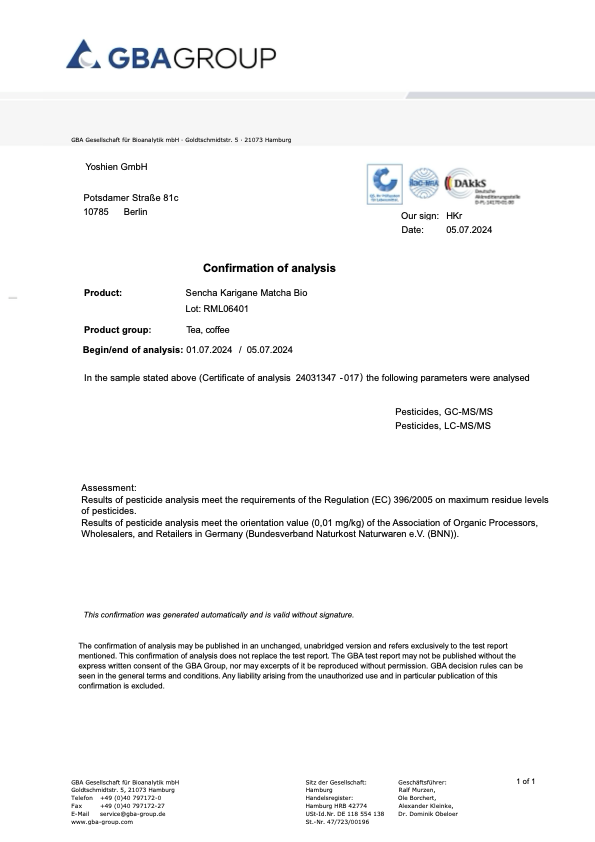Teapot
Add 5-8 tea leaves per 100-300 milliliters of water (80°C water temperature). Steep for 1-2 minutes. This tea is suitable for multiple infusions, with each steeping offering a new layer of aroma.
Glass Cup
In China, it is common to brew tea in a glass cup. Simply place 3-5 tea leaves into the glass cup and pour in 80°C water to enjoy the refreshing aroma and taste. This method also allows you to observe the unfolding of the tea leaves.
Organic Certification











